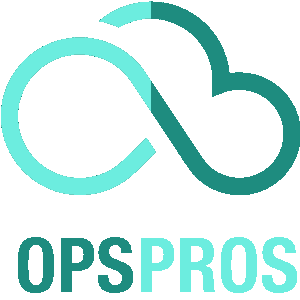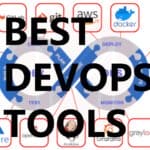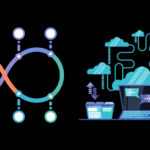
What are some challenges that DevOps teams may face when implementing AI? Explore the hurdles and unlock the secrets to harnessing AI’s power in your DevOps workflows.
Challenges Faced by DevOps Teams in Implementing AI
Integrating artificial intelligence (AI) into DevOps workflows brings tremendous benefits, from improved efficiency to enhanced collaboration. However, this exciting endeavor also presents its fair share of challenges.
In this article, we will explore the key challenges that DevOps teams may encounter when implementing AI and discuss practical steps to overcome them.
From the lack of expertise and data management complexities to cultural resistance and infrastructure scalability.
Join us on this journey to understand the challenges and discover effective strategies for successful AI integration within DevOps.
Lack of Expertise – What are some challenges that DevOps teams may face when implementing AI
When DevOps teams implement AI, they often face the challenge of expertise scarcity. Integrating AI requires a diverse skill set, including data scientists, ML engineers, and AI experts. However, finding and retaining such talent can be difficult and costly.
In this section, we’ll explore the concept of expertise scarcity and its implications for DevOps teams implementing AI.
Understanding the Key Terms
- DevOps: The combination of software development and IT operations to streamline application development and deployment.
- AI: Artificial Intelligence that simulates human-like intelligence in machines.
- Expertise: Specialized knowledge and skills in areas like data science, machine learning, and AI technologies.
The Challenge of Expertise Scarcity
DevOps teams implementing AI face a major hurdle: a lack of expertise. Building a team with skills in data science, ML, and AI is complex and costly. The competitive job market makes it challenging to attract and retain experts.
Consider a scenario where a DevOps team aims to develop an AI-powered recommendation system. They need professionals who can design ML models, analyze data, and fine-tune algorithms.
Here’s a Python code example for training a recommendation model:
from sklearn.neighbors import NearestNeighbors
model = NearestNeighbors(n_neighbors=5)
model.fit(training_data)
Without expertise, understanding and implementing such code becomes overwhelming.
Pro Tips
- Invest in continuous learning: Encourage team members to enhance their skills through courses and workshops.
- Promote knowledge sharing: Foster an environment that encourages expertise sharing and learning from one another.
- Collaborate with external experts: Consider partnering with consultants or AI service providers to access their expertise.
Key Takeaways
- Lack of expertise in AI, ML, and data science is a challenge for DevOps teams implementing AI.
- Building a skilled team can be difficult and costly due to job market competition.
- Expertise is crucial for tasks like designing AI models and analyzing data.
Section Wrap Up – What are some challenges that DevOps teams may face when implementing AI
In this section, we explored the challenge of expertise scarcity in DevOps teams implementing AI. We defined key terms, discussed the implications, provided a code sample, and offered pro tips.
By recognizing the importance of expertise and employing strategies to address it, DevOps teams can successfully integrate AI into their processes.
Data Management – What are some challenges that DevOps teams may face when implementing AI
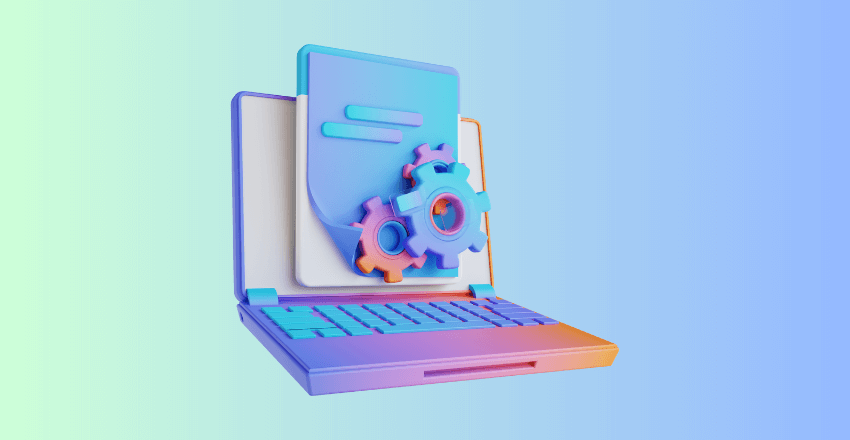
Data management is a critical challenge that DevOps teams often face when implementing AI. Effective AI integration relies heavily on high-quality, relevant, and unbiased data for training and accurate predictions.
In this section, we will explore the concept of data management and its significance in the context of AI implementation within DevOps.
Understanding the Key Term
- Data management: The practice of organizing, storing, and processing data to ensure its quality, accessibility, and reliability throughout its lifecycle.
The Challenge of Data Management
Data management poses a significant challenge for DevOps teams implementing AI. To achieve accurate AI models, it is crucial to have high-quality, relevant, and unbiased data. However, collecting and maintaining such data can be challenging.
For instance, consider a scenario where a DevOps team aims to build an AI-powered image recognition system. They need a diverse and representative dataset of images for training the AI model.
Here’s an example of Python code that demonstrates how to load and preprocess image data:
import numpy as np
from PIL import Image
# Load the image
image = Image.open('image.jpg')
# Convert the image to a numpy array
image_array = np.array(image)
# Preprocess the image (e.g., resize, normalize, etc.)
processed_image = preprocess_image(image_array)In the code snippet above, the team utilizes the PIL library to load and preprocess the image data. Proper data management practices ensure the availability of high-quality images and enable preprocessing steps like resizing and normalization.
Pro Tips
- Define data quality requirements: Clearly define the quality criteria for data, including relevance, accuracy, completeness, and consistency.
- Implement data governance: Establish policies and processes to ensure data integrity, accessibility, security, and compliance throughout its lifecycle.
- Perform regular data audits: Conduct periodic audits to assess data quality, identify gaps, and take corrective actions to maintain high-quality data.
Key Takeaways
- Data management is a crucial challenge for DevOps teams implementing AI.
- High-quality, relevant, and unbiased data is essential for accurate AI models.
- Proper data management practices involve defining quality requirements, implementing governance, and conducting regular audits.
Section Wrap Up
By prioritizing data quality and implementing effective data management practices, DevOps teams can ensure the success of their AI integration efforts.
Integration with Existing Tools – What are some challenges that DevOps teams may face when implementing AI

Integration with existing tools is a significant challenge that DevOps teams may encounter when implementing AI. DevOps processes often rely on a variety of tools for different tasks, and seamlessly incorporating AI solutions into this toolset can be complex.
In this section, we will explore the concept of integration with existing tools and the importance of interoperability for successful AI implementation in DevOps.
Understanding the Key Terms
- Integration: The process of combining different tools, systems, or components to work together as a cohesive unit.
- Interoperability: The ability of different tools or systems to communicate and work together seamlessly.
The Challenge of Integration with Existing Tools
Integrating AI solutions with existing DevOps tools poses a challenge for DevOps teams. The toolset used in DevOps processes is often diverse, comprising source code management, continuous integration/continuous delivery (CI/CD), and deployment tools.
Ensuring the seamless integration of AI solutions with these existing tools requires careful consideration.
For example, let’s consider a scenario where a DevOps team wants to integrate an AI-based anomaly detection system into their CI/CD pipeline. They need to ensure that the AI system can seamlessly interface with their existing version control system, build automation tools, and deployment mechanisms.
Here’s an example of a code snippet showcasing the integration of an AI model into a CI/CD pipeline:
import os
import subprocess
# Run the AI model to detect anomalies
subprocess.run(['python', 'anomaly_detection.py'])
# Deploy the application if no anomalies are detected
if os.path.exists('anomalies.txt'):
print("Anomalies detected. Deployment aborted.")
else:
subprocess.run(['bash', 'deploy.sh'])In the code snippet above, the team integrates the AI anomaly detection script into their CI/CD pipeline. The script runs the AI model to detect anomalies, and based on the results, either proceeds with the deployment or aborts it.
Pro Tips
- Evaluate tool compatibility: Assess the compatibility of AI solutions with existing tools during the selection process to ensure seamless integration.
- Leverage APIs and plugins: Utilize APIs and plugins provided by AI solutions or existing tools to facilitate integration and interoperability.
- Collaborate with solution providers: Seek assistance from AI solution providers experienced in integrating AI with DevOps tools and processes.
Key Takeaways
- Integration with existing tools is a significant challenge when implementing AI in DevOps.
- The diverse toolset in DevOps processes requires careful consideration for seamless integration.
- Compatibility, APIs, and collaboration with solution providers can facilitate successful integration.
Section Wrap Up – What are some challenges that DevOps teams may face when implementing AI
By addressing the challenges of integration and ensuring seamless interoperability, DevOps teams can successfully incorporate AI into their existing toolset and enhance their processes.
Cultural Resistance – What are some challenges that DevOps teams may face when implementing AI

Cultural resistance can pose significant challenges for DevOps teams when implementing AI. Adopting AI technologies in DevOps requires a shift in organizational culture, as it involves changing traditional workflows and processes.
In this section, we will explore the concept of cultural resistance and its impact on successful AI integration within DevOps.
Understanding the Key Term
- Cultural resistance: The reluctance or opposition to change within an organization due to ingrained practices, beliefs, or fears.
The Challenge of Cultural Resistance
Cultural resistance presents a significant challenge for DevOps teams implementing AI. Integrating AI technologies requires a cultural shift, as it disrupts traditional workflows and may evoke fears of job displacement or loss of control over processes.
For instance, consider a scenario where a DevOps team introduces an AI-powered automated testing system. Some team members may resist the change, fearing that AI will replace their roles or that they will lose control over testing processes.
Overcoming this cultural resistance is crucial for successful AI implementation.
Here’s an example of a code snippet that demonstrates the implementation of an AI-powered automated testing system:
import unittest
from ai_testing import AIUnitTestRunner
# Create an instance of the AI-powered test runner
runner = AIUnitTestRunner()
# Discover and run the AI-powered tests
runner.discover_and_run_tests()
# Generate test reports
runner.generate_reports()In the code snippet above, the team utilizes an AI-powered test runner to automate the testing process. However, cultural resistance may arise as team members adjust to the new way of testing.
Pro Tips
- Communication and transparency: Foster open and transparent communication about the benefits of AI implementation and address concerns and misconceptions.
- Education and training: Provide training and resources to help team members understand AI technologies and their positive impact on their work.
- Empower and involve team members: Involve team members in the AI integration process, seek their input, and empower them to contribute to decision-making.
Key Takeaways
- Cultural resistance can impede the successful implementation of AI in DevOps.
- Introducing AI technologies requires a cultural shift and may evoke fears and concerns among team members.
- Open communication, education, and involvement of team members are essential in overcoming cultural resistance.
Section Wrap Up
By addressing cultural resistance through effective communication, education, and involvement, DevOps teams can overcome barriers and successfully integrate AI technologies into their workflows, driving positive transformation within their organizations.
Complexity – What are some challenges that DevOps teams may face when implementing AI

Complexity poses significant challenges for DevOps teams when implementing AI. AI algorithms and techniques can be intricate and understanding their application within DevOps processes can be difficult for team members.
In this section, we will explore the concept of complexity and its implications for successful AI integration in DevOps.
Understanding the Key Term
- Complexity: The intricacy and difficulty associated with AI algorithms and techniques.
The Challenge of Complexity
Complexity presents a challenge for DevOps teams implementing AI. AI algorithms and techniques can be complex, requiring specialized knowledge to understand and implement effectively within DevOps processes.
For instance, let’s consider a scenario where a DevOps team aims to implement an AI-powered anomaly detection system. The team needs to understand the intricacies of anomaly detection algorithms, feature engineering, and model evaluation techniques.
Here’s a code snippet that demonstrates the implementation of an anomaly detection algorithm using Python:
from sklearn.ensemble import IsolationForest
# Create an Isolation Forest model
model = IsolationForest(contamination=0.1)
# Fit the model with training data
model.fit(training_data)
# Predict anomalies in the test data
anomaly_predictions = model.predict(test_data)In the code snippet above, the team utilizes the IsolationForest algorithm from the scikit-learn library to detect anomalies. However, comprehending the parameters, the training process, and the interpretation of results can be challenging due to the complexity of the algorithm.
Pro Tips
- Invest in learning and knowledge sharing: Encourage team members to continuously learn and share their knowledge about AI algorithms and techniques.
- Collaborate with experts: Seek guidance from AI experts or consultants to gain a deeper understanding of complex AI algorithms and their application within DevOps.
- Start with simpler use cases: Begin with simpler AI use cases that align with the team’s existing knowledge and gradually progress to more complex implementations.
Key Takeaways
- Complexity is a challenge for DevOps teams when implementing AI.
- AI algorithms and techniques can be intricate, requiring specialized knowledge and expertise.
- Continuous learning, collaboration with experts, and starting with simpler use cases can mitigate the challenges of complexity.
Section Wrap Up – What are some challenges that DevOps teams may face when implementing AI
By investing in learning, seeking expert guidance, and gradually tackling complexity, DevOps teams can overcome challenges and successfully integrate AI algorithms and techniques into their processes, unlocking the benefits of AI-powered DevOps workflows.
Ethical Considerations – What are some challenges that DevOps teams may face when implementing AI

Ethical considerations play a crucial role in the implementation of AI by DevOps teams. As AI becomes more prevalent in DevOps workflows, it is essential to address ethical concerns related to data privacy, algorithmic bias, and transparency.
In this section, we will explore the concept of ethical considerations and their significance for successful AI integration in DevOps.
Understanding the Key Term
- Ethical considerations: The examination of moral principles and values to guide decision-making regarding the responsible use of AI.
The Challenge of Ethical Considerations
Ethical considerations pose challenges for DevOps teams implementing AI. AI systems can inadvertently perpetuate biases, compromise privacy, or lack transparency, leading to potential harm. Addressing these ethical concerns is crucial to ensure responsible and trustworthy AI integration.
For example, consider a scenario where a DevOps team implements an AI-powered chatbot for customer support. It is essential to ensure that the chatbot respects user privacy, avoids biased responses, and provides transparent information.
Here’s an example of code that showcases an AI-powered chatbot in Python:
from chatbot import AIChatbot
# Create an instance of the AI-powered chatbot
chatbot = AIChatbot()
# Initialize the chatbot and provide user input
user_input = input("User: ")
response = chatbot.generate_response(user_input)
# Display the chatbot's response
print("Chatbot: " + response)In the code snippet above, the team utilizes an AI-powered chatbot to generate responses based on user input. Ethical considerations involve ensuring the chatbot’s responses are unbiased, respectful of privacy, and transparent about its AI-powered nature.
Pro Tips
- Implement ethical guidelines: Develop and adhere to ethical guidelines that address issues such as data privacy, algorithmic bias, and transparency.
- Conduct impact assessments: Assess the potential societal impact of AI implementation and evaluate its ethical implications throughout the development process.
- Involve diverse perspectives: Seek input from diverse stakeholders and domain experts to ensure ethical considerations are adequately addressed.
Key Takeaways
- Ethical considerations are vital for DevOps teams implementing AI.
- Addressing concerns related to privacy, bias, and transparency is crucial for responsible AI integration.
- Establishing ethical guidelines, conducting impact assessments, and involving diverse perspectives can mitigate ethical challenges.
Section Wrap Up
By prioritizing ethical considerations throughout the AI integration process, DevOps teams can ensure responsible and trustworthy AI implementation, fostering positive societal impact and user trust.
Infrastructure and Scalability – What are some challenges that DevOps teams may face when implementing AI
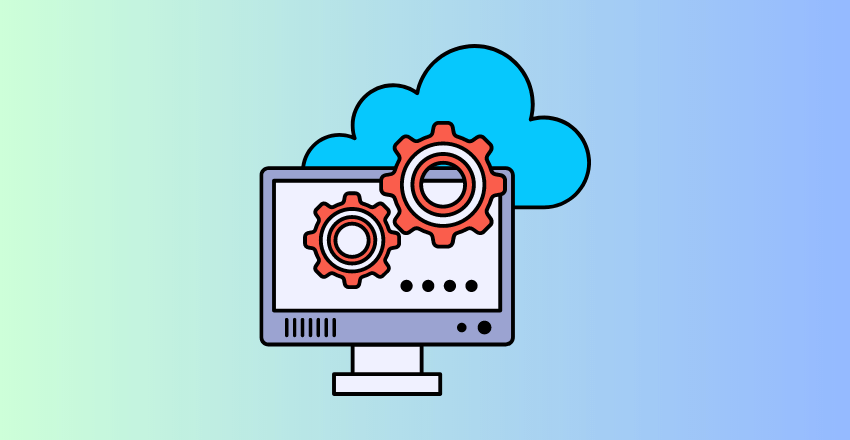
Infrastructure and scalability are crucial considerations for DevOps teams when implementing AI. AI applications often require significant computational resources and the ability to scale efficiently.
In this section, we will explore the concept of infrastructure and scalability and its importance for successful AI integration within DevOps.
Understanding the Key Terms
- Infrastructure: The underlying technology and resources required to support AI systems, including hardware, software, networks, and storage.
- Scalability: The ability of a system to handle an increasing workload or accommodate growth without compromising performance.
The Challenge of Infrastructure and Scalability – What are some challenges that DevOps teams may face when implementing AI
Infrastructure and scalability pose significant challenges for DevOps teams implementing AI. AI applications often demand substantial computational power, storage capacity, and network bandwidth. Ensuring the availability and scalability of infrastructure resources can be complex and resource-intensive.
For instance, consider a scenario where a DevOps team aims to implement a large-scale AI recommendation system for an e-commerce platform. The system needs to handle a high volume of data and user requests efficiently.
Here’s an example of code that demonstrates the implementation of a recommendation algorithm:
import pandas as pd
from sklearn.neighbors import NearestNeighbors
# Load the dataset
dataset = pd.read_csv('data.csv')
# Initialize the NearestNeighbors model
model = NearestNeighbors(n_neighbors=5)
# Fit the model with the dataset
model.fit(dataset)
# Get recommendations for a given item
item_id = 123
recommendations = model.kneighbors([dataset.loc[item_id]])
# Process and display the recommendations
process_recommendations(recommendations)In the code snippet above, the team utilizes the NearestNeighbors algorithm from the scikit-learn library to generate item recommendations. However, processing large datasets and serving recommendations to numerous users at scale requires robust infrastructure and efficient resource allocation.
Pro Tips
- Evaluate infrastructure requirements: Assess the computational, storage, and network requirements of AI applications and plan the infrastructure accordingly.
- Utilize cloud and container technologies: Leverage cloud platforms and containerization technologies to easily provision and scale infrastructure resources as needed.
- Implement monitoring and auto-scaling: Set up monitoring systems and auto-scaling mechanisms to dynamically adjust resource allocation based on workload demands.
Key Takeaways
- Infrastructure and scalability are crucial considerations when implementing AI in DevOps.
- AI applications often require significant computational resources, storage capacity, and network bandwidth.
- Evaluating infrastructure requirements, utilizing cloud technologies, and implementing monitoring and auto-scaling can address scalability challenges.
Section Wrap Up
By addressing infrastructure requirements, leveraging scalable technologies, and implementing monitoring and auto-scaling mechanisms, DevOps teams can ensure the availability and efficient scaling of infrastructure resources to support AI applications, enabling successful AI integration within their workflows.
Continuous Monitoring and Maintenance – What are some challenges that DevOps teams may face when implementing AI

Continuous monitoring and maintenance are critical aspects of implementing AI for DevOps teams. AI systems require ongoing monitoring to ensure performance, accuracy, and reliability.
In this section, we will explore the concept of continuous monitoring and maintenance and its significance for successful AI integration within DevOps.
Understanding the Key Terms
- Continuous monitoring: The practice of consistently observing and evaluating AI systems to ensure their performance, accuracy, and reliability.
- Maintenance: The ongoing activities performed to keep AI systems in optimal working condition, including updates, bug fixes, and performance optimizations.
The Challenge of Continuous Monitoring and Maintenance
Continuous monitoring and maintenance present challenges for DevOps teams implementing AI. AI systems can experience performance degradation, accuracy issues, or encounter new bugs over time. It is crucial to establish monitoring mechanisms and perform regular maintenance to address these challenges.
For instance, consider a scenario where a DevOps team implements an AI-powered fraud detection system. The team needs to continuously monitor the system’s performance to identify any anomalies or false positives/negatives.
Here’s an example of code that demonstrates continuous monitoring:
import time
while True:
# Run the AI fraud detection algorithm
fraud_result = run_fraud_detection()
# Process the fraud result and take necessary actions
process_fraud_result(fraud_result)
# Sleep for a specified interval before running the next iteration
time.sleep(60)In the code snippet above, the team sets up a continuous monitoring loop that runs the AI fraud detection algorithm at regular intervals. The results are then processed, and appropriate actions are taken based on the fraud detection outcomes.
Pro Tips
- Establish monitoring metrics: Define key performance indicators (KPIs) and metrics to measure the performance and accuracy of AI systems.
- Automate monitoring processes: Utilize monitoring tools and automation to streamline the continuous monitoring process and alert the team of any anomalies.
- Regularly update and optimize: Perform regular maintenance activities, including updating AI models, fixing bugs, and optimizing performance to ensure system reliability.
Key Takeaways
- Continuous monitoring and maintenance are essential for DevOps teams implementing AI.
- AI systems require ongoing observation to ensure performance, accuracy, and reliability.
- Establishing monitoring mechanisms, automating processes, and performing regular maintenance are crucial for successful AI integration.
Section Wrap Up
By establishing robust monitoring mechanisms, automating processes, and performing regular maintenance, DevOps teams can ensure the performance, accuracy, and reliability of AI systems throughout their implementation, fostering successful AI integration within their workflows.
Security and Robustness – What are some challenges that DevOps teams may face when implementing AI

Security and robustness are paramount considerations for DevOps teams when implementing AI. Protecting AI systems from vulnerabilities, ensuring data privacy, and maintaining system integrity are crucial.
In this section, we will explore the concept of security and robustness and their significance for successful AI integration within DevOps.
Understanding the Key Terms
- Security: The protection of AI systems and data from unauthorized access, manipulation, and breaches.
- Robustness: The ability of AI systems to perform reliably and accurately under various conditions and in the face of potential challenges.
The Challenge of Security and Robustness
Security and robustness present challenges for DevOps teams implementing AI. AI systems can be susceptible to vulnerabilities, such as adversarial attacks, data poisoning, or unauthorized access. Ensuring the security and robustness of AI systems is crucial to protect sensitive data and maintain system reliability.
For instance, consider a scenario where a DevOps team deploys an AI-powered image classification system. They must address potential security vulnerabilities that could compromise the integrity of the AI system or the privacy of user data.
Here’s an example of code that demonstrates security measures:
import tensorflow as tf
# Load the AI model for image classification
model = tf.keras.models.load_model('image_model.h5')
# Perform user authentication and authorization
authenticate_user()
# Classify the user-provided image using the AI model
image = preprocess_image(user_image)
prediction = model.predict(image)
# Take necessary steps to ensure data privacy and system security
process_prediction(prediction)In the code snippet above, the team applies security measures by authenticating the user, ensuring user authorization, and taking necessary steps to protect data privacy and system security.
Pro Tips
- Implement access controls: Restrict access to AI systems and data based on user roles and permissions to mitigate unauthorized access.
- Regularly update and patch: Stay updated with the latest security patches and best practices to address vulnerabilities in AI frameworks and libraries.
- Conduct security assessments: Perform regular security assessments, including penetration testing, to identify and address potential weaknesses in AI systems.
Key Takeaways
- Security and robustness are critical considerations for DevOps teams implementing AI.
- AI systems can be vulnerable to attacks, unauthorized access, and data breaches.
- Implementing access controls, regular updates, and security assessments can enhance the security and robustness of AI systems.
Section Wrap Up
By prioritizing security measures, keeping systems updated, and conducting regular assessments, DevOps teams can protect AI systems, safeguard sensitive data, and ensure the robustness of their AI implementation, fostering successful integration within their workflows.
Regulatory Compliance – What are some challenges that DevOps teams may face when implementing AI

Regulatory compliance is a crucial consideration for DevOps teams when implementing AI. Adhering to applicable laws, regulations, and industry standards is essential to ensure ethical and responsible AI implementation.
In this section, we will explore the concept of regulatory compliance and its significance for successful AI integration within DevOps.
Understanding the Key Term
- Regulatory compliance: The adherence to laws, regulations, and industry standards governing the use of AI to ensure ethical and responsible practices.
The Challenge of Regulatory Compliance
Regulatory compliance poses challenges for DevOps teams implementing AI.
As AI technologies evolve, laws and regulations are being developed to govern their use, particularly in sensitive domains such as healthcare, finance, and privacy. Ensuring compliance with these regulations can be complex and demanding.
For instance, consider a scenario where a DevOps team deploys an AI system for processing and analyzing sensitive healthcare data. They must comply with regulations such as HIPAA (Health Insurance Portability and Accountability Act) in the United States.
Here’s an example of code that showcases compliance measures:
from healthcare_utils import encrypt_data
# Load and process sensitive healthcare data
data = load_healthcare_data()
encrypted_data = encrypt_data(data)
# Perform access control and secure data storage
perform_access_control()
secure_data_storage(encrypted_data)
# Implement data anonymization techniques for privacy protection
anonymize_data(encrypted_data)In the code snippet above, the team applies compliance measures by encrypting sensitive healthcare data, implementing access control, and anonymizing the data to protect patient privacy.
Pro Tips
- Stay informed about regulations: Stay up-to-date with applicable laws and regulations governing AI implementation in your industry to ensure compliance.
- Collaborate with legal experts: Seek guidance from legal experts or consultants to navigate complex regulatory requirements and ensure compliance.
- Implement data protection measures: Employ encryption, access controls, and anonymization techniques to protect sensitive data.
Key Takeaways
- Regulatory compliance is a critical consideration for DevOps teams implementing AI.
- AI implementation must adhere to laws, regulations, and industry standards.
- Staying informed, collaborating with legal experts, and implementing data protection measures are key to achieving regulatory compliance.
Section Wrap Up
By staying informed, collaborating with legal experts, and implementing data protection measures, DevOps teams can ensure ethical and responsible AI implementation while complying with applicable laws and regulations, fostering successful integration within their workflows.
Cost Considerations – What are some challenges that DevOps teams may face when implementing AI

Cost considerations are an important aspect for DevOps teams when implementing AI. Deploying and maintaining AI systems can involve significant expenses, including infrastructure costs, licensing fees, and personnel investments.
In this section, we will explore the concept of cost considerations and their significance for successful AI integration within DevOps.
Understanding the Key Term
- Cost considerations: The evaluation and management of expenses associated with implementing and maintaining AI systems.
The Challenge of Cost Considerations
Cost considerations pose challenges for DevOps teams implementing AI. AI projects may require substantial investments in infrastructure, hardware, software licenses, and skilled personnel. Understanding and managing these costs is crucial for successful AI implementation within budgetary constraints.
For instance, consider a scenario where a DevOps team deploys a machine learning model for predictive analytics. They need to assess the costs associated with acquiring and maintaining the necessary computing resources and licenses.
Here’s an example of code that showcases cost management:
import pandas as pd
from sklearn.ensemble import RandomForestRegressor
# Load and preprocess the dataset
dataset = pd.read_csv('data.csv')
X = dataset.drop('target', axis=1)
y = dataset['target']
# Create and train a Random Forest regressor
model = RandomForestRegressor(n_estimators=100)
model.fit(X, y)
# Perform cost-effective model evaluation
evaluate_model(X, y, model)In the code snippet above, the team utilizes the Random Forest regressor to build a machine learning model. Cost-effective model evaluation techniques help ensure that model performance is assessed efficiently, saving computational resources and associated costs.
Pro Tips
- Evaluate cost-saving alternatives: Explore cloud-based services, open-source tools, or cost-effective infrastructure options to optimize expenses.
- Monitor and optimize resource usage: Continuously monitor resource utilization and optimize system configurations to avoid unnecessary costs.
- Invest in skilled personnel: Build a team with expertise in AI and cost management to make informed decisions and optimize resource allocation.
Key Takeaways
- Cost considerations are a significant challenge for DevOps teams implementing AI.
- AI projects often involve substantial expenses, including infrastructure, licensing, and personnel costs.
- Evaluating cost-saving alternatives, monitoring resource usage, and investing in skilled personnel can help manage costs effectively.
Section Wrap Up
By evaluating cost-saving alternatives, monitoring resource usage, and investing in skilled personnel, DevOps teams can manage costs effectively while implementing AI systems, ensuring a successful integration within their workflows.
Change Management – What are some challenges that DevOps teams may face when implementing AI
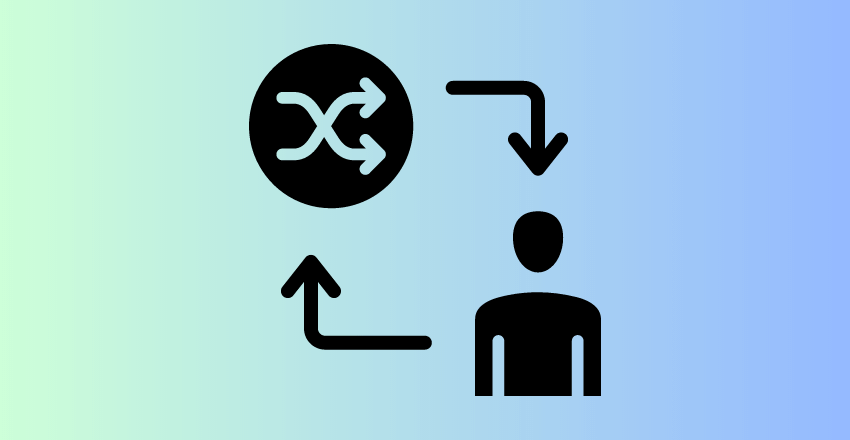
Change management is a crucial aspect for DevOps teams when implementing AI. Introducing AI into existing DevOps workflows requires careful planning, communication, and adaptation. In this section, we will explore the concept of change management and its significance for successful AI integration within DevOps.
Understanding the Key Terms
- Change management: The process of managing and adapting to changes brought about by the implementation of AI in DevOps workflows.
The Challenge of Change Management
Change management poses challenges for DevOps teams implementing AI. Integrating AI into existing processes requires adapting workflows, redefining roles, and fostering a culture of openness and collaboration.
Overcoming resistance to change and ensuring a smooth transition is crucial for successful AI integration.
For instance, consider a scenario where a DevOps team introduces AI-based automated testing into their software development process. The team needs to communicate the benefits, provide training, and facilitate the adoption of the new testing approach.
Here’s an example of code that showcases change management practices:
import pytest
def test_functionality():
# Write unit tests for existing functionality
assert func1() == expected_result
def test_ai_model():
# Integrate AI-based testing using trained model
assert ai_model.predict(input_data) == expected_output
if __name__ == "__main__":
pytest.main(["-s", "-v", "--color=yes"])In the code snippet above, the team incorporates AI-based testing alongside existing unit tests. By gradually introducing AI testing and promoting collaboration, the team embraces change and ensures a smooth transition.
Pro Tips
- Communicate and educate: Clearly communicate the purpose, benefits, and impact of AI implementation to gain buy-in and educate team members.
- Encourage collaboration: Foster a culture of openness, collaboration, and shared responsibility to facilitate the adoption of AI technologies.
- Iterate and adapt: Embrace an iterative approach, gather feedback, and make necessary adjustments to optimize AI integration within DevOps workflows.
Key Takeaways
- Change management is a significant challenge for DevOps teams implementing AI.
- Integrating AI requires adapting workflows, redefining roles, and fostering collaboration.
- Effective communication, collaboration, and adaptability are key to successful change management.
FAQs: – What are some challenges that DevOps teams may face when implementing AI

Q: What is the primary challenge in implementing DevOps?
A: The primary challenge in implementing DevOps lies in overcoming the cultural shift and fostering collaboration between development and operations teams. Breaking down silos and adopting a shared responsibility mindset can be a significant hurdle.
Q: What are the challenges that DevOps faces?
A: DevOps teams often face challenges such as managing complex toolchains, ensuring continuous integration and delivery, scaling infrastructure efficiently, handling security and compliance, and adapting to changing technologies and market demands.
Q: Can a DevOps team benefit from leveraging artificial intelligence (AI)?
A: Absolutely! Leveraging AI can bring significant benefits to DevOps teams. It can enhance automation, improve efficiency, optimize resource allocation, facilitate predictive analytics, enable intelligent monitoring, and help detect and mitigate security threats.
Q: How can a DevOps team make the most of artificial intelligence (AI)?
A: To make the most of AI, DevOps teams can start by identifying suitable use cases for AI implementation within their workflows.
They should invest in acquiring the necessary expertise, collaborate with AI experts, ensure data quality and governance, integrate AI seamlessly with existing tools, and continuously monitor and optimize AI-driven systems for maximum effectiveness.
Remember that each DevOps implementation is unique, and challenges and benefits may vary depending on the organization’s specific context and goals.
Wrapping Up – What are some challenges that DevOps teams may face when implementing AI
We discussed the challenge of change management faced by DevOps teams when implementing AI. We defined key terms, explored the importance of change management, provided a code sample for change management practices, and offered pro tips.
By effectively communicating, fostering collaboration, and embracing an iterative approach, DevOps teams can navigate the challenges of change management and ensure a successful integration of AI within their workflows.
Noah is an accomplished technical author specializing in Operations and DevOps, driven by a passion ignited during his tenure at eBay in 2000. With over two decades of experience, Noah shares his transformative knowledge and insights with the community.
Residing in a charming London townhouse, he finds inspiration in the vibrant energy of the city. From his cozy writing den, overlooking bustling streets, Noah immerses himself in the evolving landscape of software development, operations, and technology. Noah’s impressive professional journey includes key roles at IBM and Microsoft, enriching his understanding of software development and operations.
Driven by insatiable curiosity, Noah stays at the forefront of technological advancements, exploring emerging trends in Operations and DevOps. Through engaging publications, he empowers professionals to navigate the complexities of development operations with confidence.
With experience, passion, and a commitment to excellence, Noah is a trusted voice in the Operations and DevOps community. Dedicated to unlocking the potential of this dynamic field, he inspires others to embrace its transformative power.
